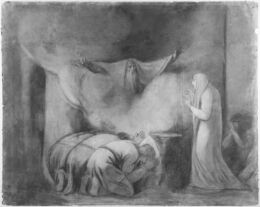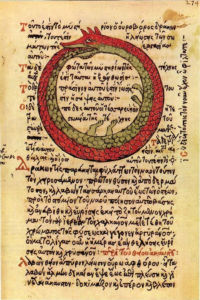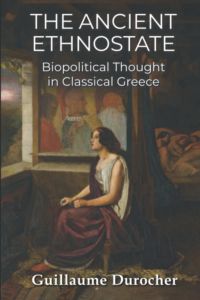Tag: Herodotus
-
6,611 words
Part 1 of 7 (Part 2 here)
One of the most startling historical truths is that Europeans invented the writing of history as “a method of sorting out the true from the false,” as a conscious search for a rational explanation of the causes of events, while rendering the results of their investigations in sustained narratives of excellent prose. The other peoples of the world, including the Chinese who maintained for centuries a tradition of chronological writers, barely rose above annalistic forms of recording the deeds of rulers or the construction of genealogies devoid of reflections on historical causation. This would not have been judged a controversial view a few decades ago. (more…)
-
2,931 words
Part 3 of 3 (Part 1 here, Part 2 here)
III. Deserts Take Few Prisoners
“. . . we saw the break-up of the enemy . . . [they escaped] into what they thought was empty land beyond. However, in the empty land was Auda[1]; and in that night of his last battle the old man killed and lulled, plundered and captured, till dawn showed him the end. (more…)
-
Guillaume Durocher
The Ancient Ethnostate: Biopolitical Thought in Classical Greece
Self-published, 2021It almost goes without saying that any book written today by someone from the Dissident Right on the subject of Classical Greece will be more accurate to the spirit of antiquity and more honest about the racial realities that underlie it than anything that could be published in contemporary academia. This book gives a good survey of the history, culture, and ideas of key writers of various sorts in Ancient Greece. (more…)
-
The Western Classical notion of identity comes to us from Herodotus’ Histories, written in the 5th century B.C. It’s from Herodotus that we have the story of the 300 Spartans at Thermopylae, told in the broader context of the entire Hellenic world’s successful resistance of the Persian invasion. In order to do that, the Spartans (Dorians) and Athenians (Ionians) had to overcome their differences and join together to defend what was common to both of them as Greeks. (more…)
-
2,257 words
In The Histories, the Greek historian Herodotus relates an account of a conflict between (Greek) Athenians and a group identified as “Pelasgians.” The story encodes ideas of racial/cultural difference, expulsion, miscegenation, mass murder, and, especially, racial (genetic) dominance that are still relevant today.
The story is related in Book Six, §§6.137–6.140. At some unknown date prior to Herodotus’ time, but still remembered, the Athenians expelled the Pelasgians from Attica, (more…)
-
3,228 words
No group of people can hope to regain control of their destiny unless they possess two essential things: the will to survive as a people, and knowledge. The reader who seeks to have a well-guided will must have an unshakable sense of identity: an understanding of who he is and his relationship to the world around him.
-
2,309 words
In retrospect, Aryans appear to have harbored a naïve faith in the natural relationship between reputation, fame, and merit. True, our conceptions served us well enough in our own world. But that was prior to the Age of Defamation. Now we see that fame, reputation, and moral worth can be completely unrelated. It is child’s play for dominant, cunning, and unscrupulous elites to destroy reputations, fabricate evidence and opinions, and reverse the judgments of history—and have their constructs stick, and be universally accepted.
-
The Landmark Herodotus: The Histories
Edited by Robert B. Strassler
New York: Pantheon, 2007Independent scholar Robert Strassler has produced far and away the best English edition aimed at the general reader of the work which remains the fountainhead of the Western historical tradition. Let us hope there is still a fit audience out there for it—men, that is, capable of learning what Herodotus has to teach.








